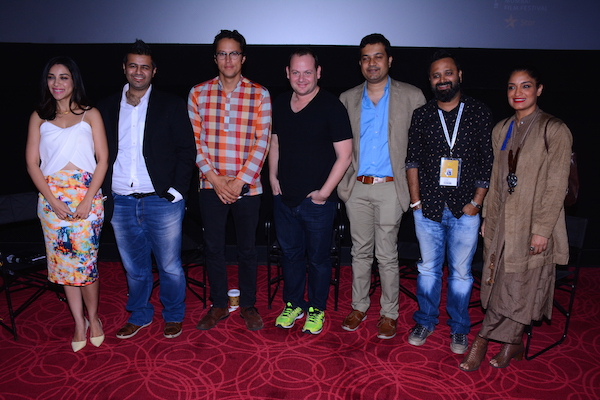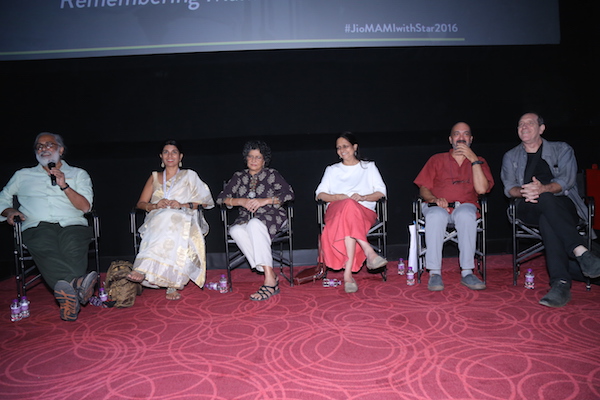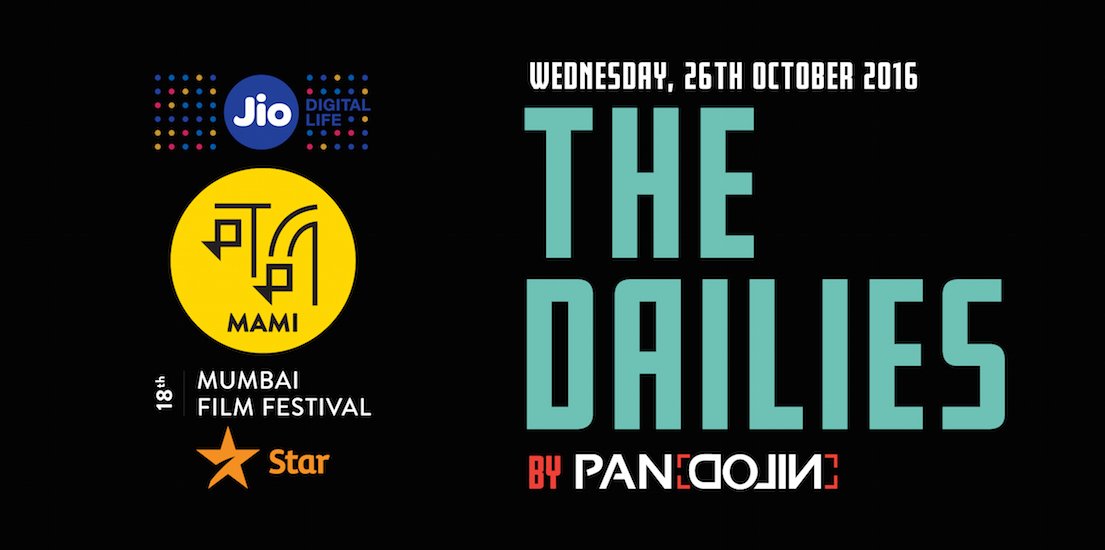MAMI Wrap Up – Day 7
[pdf-embedder url=”https://filmcity.one/wp-content/uploads/2016/10/Issue_07_Upload.pdf” title=”The Dailies – Issue 7 “]
Viva La Cinema

Amrita Puri, Nikhil Taneja, Cary Fukunaga, Gideon Raff, Gaurav Banerjee, Nikhil Advani and Sandhya Mridul
Movies are a shorthand to communicating across international divides. At MAMI, the menu is a veritable pot pourri of global art from different parts of the world.
This edition offers a special glimpse into the cinema of Turkey, which is being represented at the festival by the stellar film Blue Bicycle. On Page 2, we have interviews with well-known names from the Turkish entertainment industry.
Today will mark the culmination of the ‘Word to Screen Market’ initiative, where publishers and agents of books, already available or yet to be released, will pitch their titles directly to film, TV or digital content creators. Arpita Das, from Yoda Press and co-founder of Authors UpFront, elaborates on this programme in an interview on Page 5
However, the centrepiece of Day 6 action revolves around Cary Fukunaga, director of films like Beasts of No Nation and season 1 of TV series True Detective . In a Masterclass at PVR ICON, Zoya Akhtar and the director will hold forth on their unique cinematic styles and visions.
Fans can take a break from all the movie talk with a musical interlude – ‘Light Music’ – by experimental performance artist Lis Rhodes. And then later, stay tuned for the showing of Vikramaditya Motwane’s indie drama Trapped, about a man caught inside an apartment for 25 days.
From world renowned stars to local delights, the penultimate day of MAMI promises to be one to remember. Viva la cinema!
Anecdotes from Mani Kaul’s Ahamaq: The Idiot Reunion

Ahamaq Reunion Panel
They say that his only command to an actor was action devoid of a cut. Mani Kaul’s team members of the unreleased mini-series Ahamaq met after 22 years to discuss the process of working with the veteran director while Mani must be smiling from the cloud door playing Dhrupad.
Meeta Vashisht
Mani was very provocative. When I met him for the first time, he said, “The worst thing that I can do to my film is to cast a trained actor.”
I had to look beyond and understand what he was trying to say. I used all of my learnings of natyashastra when I started working with him. To work on all aspects of the character that is the aangik, vaachik, aaharya and saatvik (Body, Voice, Costume-make up and Soul). He believed that there is no such thing as the face of an actor. It is the whole body, which is fragmented into elements and each element is equally important. Even if an actor’s back is to the audience, it should not just be talking to the audience but yelling to them.
Ashish Rajadhyaksha
When Mani was once asked about the menace of piracy he said, “You make a film. Have a grand screening of it. Call everybody that you want to show the film to. After the screening destroy the film’s copy by immersing it in a river. That’s the only solution.”
D Wood
The tyranny of music is so great that it forces us to think in terms of groupings. Working with him, the great thing was to break the habits and create a sonic language that was unique to the project.
Vikram Joglekar
Mani encouraged us to use sound as music and music as sound. For him, they were not two different entities. He called it a sound element. Recording sound or composing music for him meant not to keep a beginning or end to it. He did so because it was easy for him to choose. The importance of sound was seen as an element that led to visual progression in the film.
Quotes from the Women in Film panel
The Women in Film panel saw an eclectic mix of filmmakers and actors including Rahul Bose,Christine Vachon, Tillotama Shome,Tala Hadid, Leena Yadav and Rucha Pathak.
Tala Hadid – Cinema helps in spreading a good story.There are films which are considered women-oriented but any films has to be well-written to get the idea across.
Leena Yadav – Parched was not a women oriented film, it is about norms, men and victims. Men need healing too. We can just hope for cinema to make a difference.There needs to be a bigger better system to support it.
Rahul Bose – There has to be a 360 degree view towards cinema
Tillotama Shome – If you are going to make a movie about men, make them about all rounded men.Let’s make movies about men who are vulnerable.The way men are portrayed needs to change.



